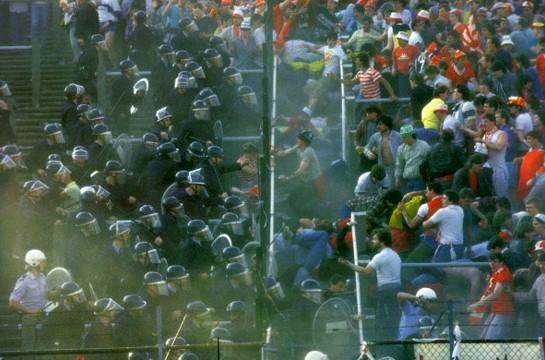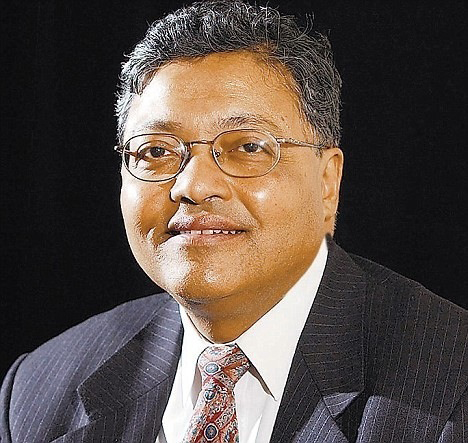The World Cup draw in South Africa had all the razzmatazz you would expect from such occasions and some. Not every draw gets Nelson Mandela, albeit on video. And quite right too that the Gandhi of our time was there.
(A touch of irony here for the real Gandhi, when he lived in South Africa, tried and failed to become a member of the Natal Football Association. Would the history of the world, or at least that of the British Empire, been different if Gandhi had been lured to football instead of civil disobedience? Discuss but do not tweet please.)
Unlike the real Gandhi, our Gandhi has an interest in sport and no man worked harder for South Africa to get the World Cup. When his country first bid for the 2006 World Cup, he even rang the King of Belgium to persuade him to get the Belgian FIFA member, Dr Michel D’Hooghe, to vote for South Africa. The good Belgium doctor had to interrupt a meeting of the FIFA Executive, which was then gathered in FIFA headquarters in Zurich to decide who would hold the tournament, to take his King’s call. That time it didn’t work. But four years later Mandela met Trinidadian Jack Warner, FIFA vice president and one of the game’s most influential power brokers, in a Zurich hotel room and this time his intervention proved crucial: South Africa beat Morocco to get the 2010 tournament.
But now that the kings and queens, modern day politicians turned saints and David Beckham have departed, the really intriguing question is: what difference will hosting the first ever World Cup in Africa make? I do not mean which country will leave South Africa with the Cup, you can take your pick from Brazil, Italy, Spain or even England.
Note I do not mention an African country. South Africa may even set a dubious record of becoming the first home country not to make it out of the group and, while Ivory Coast and Ghana have their admirers, it is impossible to see any of them fulfil Pele’s dream of an African country winning the World Cup, albeit 20 years later.
No, I mean how will it change the way world football is organised?
The question is worth asking because one of the reasons for taking the World Cup to Africa was that it would open up new football markets. This was a point made very cogently by Danny Jordaan, the man who led the South African campaign and heads their World Cup organisation. Jordaan shrewdly recognised that South Africa needed more than the emotional cry that it was finally time for Africa to host the competition. To convince the doubters, South Africa also needed an economic edge to complement their emotional slogan. Jordaan’s answer was to compare football to Coca Cola.
If Coke, he argued, wanted to expand it would hardly bother with the mature markets of Europe and America. There could not be much growth there. It had to reach parts of the world it had not reached before. And that new market for football was Africa. But Jordaan for all his great skills knew he was over-egging the pudding if not distorting the argument. Yes, the South African World Cup will provide more money for the participants but it will not change the essential dynamics of the game. For all the growth potential in Africa’s virginal football markets, they are and remain secondary to Europe. Their best players have to come to Europe to play and the World Cup will not change that.
This point cannot be over-emphasised. It needs to be made because outside football in politics, economics or even in such sports as cricket, where India is the economic powerhouse and now the number one cricket team, the old continent is struggling to cope with rivals threatening its historic dominance. In football such is the mastery of Europe that in many parts of Africa, even Jordaan’s own country, you hear talk of a new European colonialism through football.

The change has come over the last two decades and is a remarkable and little told story. As the 1990s began, it seemed that European football was literally dying. The mid-80s had seen terrible tragedies in European football: Bradford, Heysel (pictured), Hillsborough. The European Cup had not recovered from the Heysel disaster and the 1990 World Cup in ltaly was, by common consent, one of the worst in the tournament’s history.
Preceded by fears of what British hooligans would do, the tournament itself was marred by dreadful football which reached its nadir in the final between Germany and Argentina. The only brief glimmer of light was provided by Cameroon and it seemed that Pele’s prediction that Africa would win the Cup before the end of the century was not quite so unrealistic.
But within two years European football had reinvented itself through the 1992 launches of the Champions and Premier Leagues. It is worth noting that the advent of both competitions was met with much scepticism from media and fans with dire warnings of how they would destroy football.
The reality today could not provide a greater contrast. The Premier League can rightly claim to be the most successful league in the world. So successful that, on a visit to Singapore at the start of the season, I saw the Liverpool team feted as if they were kings and young Singaporeans, in particular female fans, told me how they had adjusted their sleeping patterns to make sure they got up in the middle of the night to see Premier League football beamed live from England. Indeed any visitor to Asia can hardly miss Premier League or Champions League matches and even in Kolkata’s metro (the only really clean place in that city) you can see endless replays of matches from the Premier League as you wait for a train.
In creating such a stage for football, Europe has also changed its historic football relationship with South America, the only continent which seriously threatened its dominance, the nations from the two continents having shared the previous 18 World Cups equally. In the 50s European footballers may have been lured to South America by money, now almost every prominent South American footballer from Tevez to Messi to Kaka plays in Europe. With so much of South American football financially impoverished, their players migration to Europe is an economic necessity, with South America acknowledging Europe’s football hegemony.
All this means you do not have to leave Europe to see the world’s best players. And while South Africa will provide some new settings and give us a glimpse of African crowds, the players will mostly be the ones we see every week in an European setting. North Korea, if it does well, may be the exception but even then it is unlikely to be the sensation it was in 1966 when World Cups not only meant new settings but a totally unfamiliar cast of characters.
Indeed the World Cup will essentially be sandwiched between the end of this year’s European season and the start of next year. Africa’s World Cup will be a sojourn. I hope it leaves us with some wonderful memories but it will not make the slightest difference to how the game is run or played. The continent that invented football, took it round the world, and created all its institutions from the World Cup to FIFA, will remain in uncontested charge of the game.
Mihir Bose is one of the world’s most astute observers on politics in sport and, particularly, football. He formerly wrote for The Sunday Times and The Daily Telegraph and until recently was the BBC’s head sports editor. He will be writing a weekly column for insideworldfootball.
